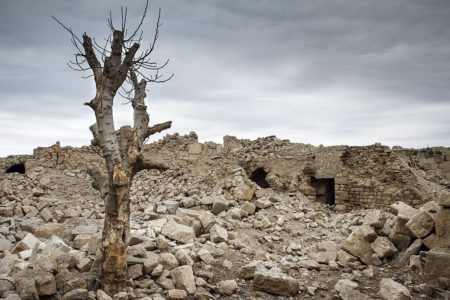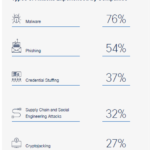June 14, 2019 – The lead author of a new study, Katharine Mach, Director of the Stanford Environment Assessment Facility, describes a scenario in which a mean atmospheric temperature increase of 4 Celsius (7.2 Fahrenheit), the rate of warming that is currently trending by century’s end, will see a spike in human conflicts growing by five times the norm. The calculation for a 2 Celsius scenario would produce about half that rate. The analysis is described in the June 12, 2019 issue of Nature, the International Journal of Science, in an article entitled, “Climate as risk factor for armed conflict.”
The study estimates that between 3 and 20% of past intranational conflicts, civil wars, and other internal uprisings, can be attributed to climate in the previous century. One of the co-authors of the paper, Philip Roessler, at William & Mary University, talks about how some have described the civil war in Darfur, Western Sudan, as the first climate-change conflict. But he believes social tensions between ethnic groups combined with a weak national government contributed greater to the violence there versus long-term drought conditions.
Mach describes the role of climate change as having significant social costs which could exacerbate social tensions, damage economies, negatively impact food supply, and contribute to growing inequality to become drivers of conflict. All who contributed research to the final paper agreed that climate is playing a role in organized armed conflicts in recent decades, and that future climate change will prove to be even more disruptive because conditions will alter beyond our human experiences to date.
James Fearson, of Stanford, a co-author, states that “putting nontrivial weight on significant climate effects on conflict is reasonable” in the rest of this century because of anticipated changes to the environment.
The study recommends risk reduction strategies to minimize or mediate conflict including:
- increasing levels of crop insurance
- improvements to post-harvest food storage
- peacekeepers to mediate early-stage conflicts
- increased levels of post-conflict aid
Probably the most pressing issues will arise around food, freshwater and energy security as atmospheric temperatures continue to rise. Any destabilization of one or more of these three could become conflict drivers.
What surprised me about the study was the lack of reference to older conflicts where historians suspect that variations in natural climate played a role. Again, and again, there are historical references to drought and other weather phenomena influencing the movement of tribes from Central Asia to the periphery of the empires of antiquity: Rome, Persia, and China.
It also surprised me that the study didn’t look at the relationship of climate change to outbreaks of pandemics and the combined influence of these two yielding increased rates of conflict.
In the last couple of decades, as climatologists have developed more sophisticated climate models, projecting them back as well as into the future, researchers have analyzed historic movements of people and seen past conflicts in a new light recognizing that climate variation has heavily influenced history.
















